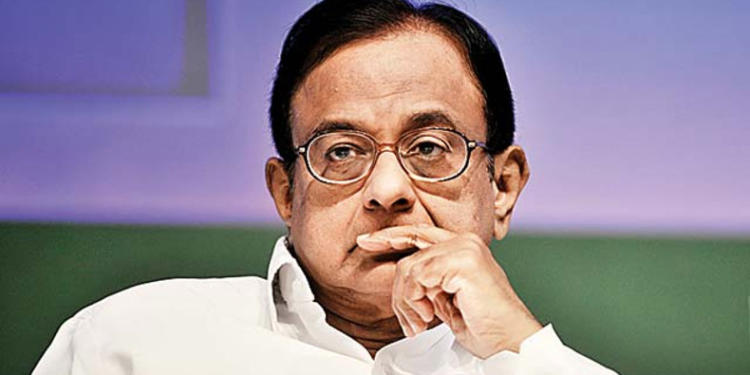Indian media is well known for sensationalizing issues. To get more eyeballs, media organizations exaggerate everything and spew sensational headlines. The left-liberal media establishment collaborates with opposition, mainly Congress which has nurtured and nourished it since the days of state monopoly over media. The state monopoly over media ended in last few decades, but the subservience of left-liberal media to Congress remains the same. The people in the media still pursue fear and rumor mongering on the direction of their political masters. In the light of RBI-Finance ministry tussle, senior Congress leader P Chidambaram tried to reap political benefits by spreading a rumor through his Twitter handle.
We did not invoke Section 7 in 1991 or 1997 or 2008 or 2013. What is the need to invoke the provision now? It shows that government is hiding facts about the economy and is desperate
— P. Chidambaram (@PChidambaram_IN) October 31, 2018
“We did not invoke Section 7 in 1991 or 1997 or 2008 or 2013. What is the need to invoke the provision now? It shows that government is hiding facts about the economy and is desperate,” tweeted Chidambaram on evening of October 30, suggesting that government has invoked Section 7 of RBI. RBI is an independent institution with no interference from government in taking policy decisions but if section 7 is invoked, RBI has to follow government orders on matters of public interest. According to RBI Act 7(1) “The central government may from time to time give such directions to the Bank as it may, after consultation with the Governor of the Bank, consider necessary in the public interest.”
Following the tweet by P Chidambaram, many mainstream media organizations reported that central government has invoked Section 7. The story was reported in Television, print and digital media. What followed was the incessant government bashing on social media, claiming that Modi government is autocratic, fascist, it does not care for institutional autonomy, democracy is in danger so on and so forth. The lousy TV anchors started discussing its consequences on markets and the Indian economy.

However, later the clarification came that the government had only started consultations with RBI on different issues under Section 7(1) and not actually invoked it. The media and opposition intentionally forgot the fact that Section 7 has two phases- first being consultation and then issuing direction to RBI to take action in public interest.
The matter is still in its first phase, while the opposition leaders and media have started reporting it to be in the second and neither the media nor the opposition leaders like P Chidambaram apologized, after the clarifications were made public. The RBI and the government have differences over some issues including payment regulation, Prompt Corrective Action (PCA) and capital infusion. The matter became public after deputy governor of RBI, Viral Acharya argued for institutional autonomy and warned that any interference from government will have catastrophic consequences. The finance ministry issued a statement clarifying its intentions to keep RBI autonomy sacrosanct, “The autonomy for the central bank, within the framework of the RBI Act, is an essential and accepted governance requirement. Government of India has nurtured and respected this,” read the statement by the Finance Ministry.
The rumor mongering by people like P Chidambaram could have a ‘catastrophic effect’ on the markets and to the Indian economy. The stock markets respond to sentiments and false reporting by mainstream media could harm the economy. The media and opposition needs to be more restrained in their criticism of government. They should not spread fake news and indulge in rumor mongering, all to pursue their agenda of defaming the Modi government.

























